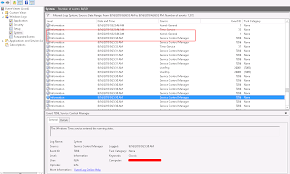Introduction
Oracle environments can be powerful and complex, but they also require precise maintenance—especially when it comes to patching and software updates. One issue that Oracle administrators occasionally run into is the software updates error Oracle ID 3104046. This guide is designed to help Oracle professionals, database administrators, and IT support teams understand what this error means, why it occurs, and—most importantly—how to fix it.
Understanding Oracle Software Update Mechanisms
Before diving into the specifics of the error, it’s important to understand how Oracle handles software updates. Oracle regularly releases updates in the form of Release Updates (RUs), Patch Set Updates (PSUs), and one-off patches. These patches are applied using Oracle’s OPatch utility, which ensures that patches are installed in the correct order and validated against Oracle inventory.
Each patch or update is tagged with a unique ID and associated documentation. Occasionally, during this patching process, a conflict or corruption may occur, which triggers errors like software updates error Oracle ID 3104046.
What Is Software Updates Error Oracle ID 3104046?
The error Oracle ID 3104046 typically appears during the process of applying or validating a software update or patch using OPatch or Datapatch tools. It might show up with supporting messages such as:
- “Patch conflict detected.”
- “Missing inventory files.”
- “Unable to verify patch integrity.”
- “Datapatch SQL execution failed.”
While Oracle doesn’t always publicly document these error codes in detail, ID 3104046 has been linked with patching inconsistencies, inventory mismatches, and file permission problems.
Common Causes Behind Oracle Error ID 3104046
There is no one-size-fits-all cause for this Oracle patching error. However, several recurring problems have been reported across multiple environments, including:
- Incomplete or corrupted patch files during the download or unzipping stage.
- Conflicting patches or update versions already applied to the system.
- File permission issues, where the OPatch utility cannot write or modify required files.
- Improper environment variables (like
$ORACLE_HOME,$PATH, etc.). - Outdated OPatch version that doesn’t support the current patch level.
The table below summarizes these causes for quick reference:
| Cause | Description | Solution |
|---|---|---|
| Corrupt Patch Files | Damaged during download or transfer | Re-download and verify checksum |
| Conflicting Patch | Previous patch versions conflict with current one | Roll back previous patch or consult documentation |
| Permissions Issue | OPatch cannot access required files | Grant necessary OS permissions |
| Wrong OPatch Version | Using old patching tool | Update OPatch utility from Oracle Support |
| Environment Misconfig | Misconfigured variables like ORACLE_HOME | Set correct values in shell |
Pre-Patch Diagnostics and Checks
Before attempting to fix the error, it’s essential to run some diagnostics to pinpoint the issue. You can start by checking the current patch inventory using the following command:
bashCopyEdit$ORACLE_HOME/OPatch/opatch lsinventory
This will display the currently applied patches, Oracle Home details, and any inventory inconsistencies. If you notice missing information, duplicate patches, or failed patch attempts, these could be key signs contributing to the software updates error Oracle ID 3104046.
Also verify that the patch files are intact by comparing their checksums against Oracle’s official SHA256 values. Use sha256sum on Linux or a checksum tool on Windows.
Step-by-Step Solution for Oracle ID 3104046
Resolving the software updates error Oracle ID 3104046 typically requires a methodical approach. Below are the detailed steps:
- Shut Down Oracle Services:
Ensure that the database, listener, and any dependent services are properly shut down before applying any patch. - Re-Download Patch Files:
Corrupted patch files are a frequent cause. Download the patch again from My Oracle Support, unzip it, and verify the integrity with a checksum. - Validate OPatch Version:
Runopatch version. If it’s outdated, download the latest OPatch utility from Oracle and replace the old one in your$ORACLE_HOME/OPatchdirectory. - Clean Up Conflicts:
If the patch conflicts with existing updates, use theopatch rollbackcommand for the conflicting patch or resolve supersedence manually. - Run OPatch with Verbosity:
Use verbose mode for better output, like this: bashCopyEditopatch apply -silent -verbose - Run Datapatch After OPatch:
For database patches, run: bashCopyEdit$ORACLE_HOME/OPatch/datapatch -verbose - Verify Patch Application:
Rerunopatch lsinventoryto ensure the patch has been successfully applied and no errors remain.
Real-World Example
Let’s assume a DBA attempts to install a Release Update (RU) for Oracle 19c and encounters software updates error Oracle ID 3104046. They follow the steps:
- Stopped the database and listener.
- Re-downloaded patch
p34587621_190000_Linux-x86-64.zip. - Verified SHA256 checksum matches Oracle’s official hash.
- Updated OPatch to version 13.9.4.2.5.
- Ran
opatch applyin verbose mode. - Encountered file lock issues, which they resolved by terminating leftover
ora_pmonandtnslsnrprocesses. - Successfully applied the patch and verified with
datapatch.
This structured approach helped resolve the problem completely without requiring Oracle Support escalation.
Best Practices to Avoid Future Errors
To prevent encountering errors like Oracle ID 3104046 in the future, consider implementing the following best practices:
- Maintain a clean inventory by regularly checking patch status using
opatch lsinventory. - Always run Datapatch after applying database patches to sync SQL-based changes.
- Use a test environment to apply and validate patches before production deployment.
- Automate patch backups and rollback steps using shell scripts or patch management tools.
- Document every patching session for compliance and recovery purposes.
Frequently Asked Questions
Q1: Is Oracle ID 3104046 specific to a version?
No, this error can appear across different Oracle versions, especially if the patching mechanism or files are inconsistent.
Q2: Can I skip this patch if the error persists?
Skipping a patch is not recommended unless explicitly allowed by Oracle. It can create gaps in security or functionality.
Q3: Should I contact Oracle Support for this error?
If the above troubleshooting doesn’t work, open a service request and provide logs from opatch and datapatch runs.
Conclusion
The software updates error Oracle ID 3104046 may seem daunting at first, but with a structured approach, it can be diagnosed and resolved efficiently. Whether the issue stems from a corrupted patch file, version conflict, or misconfiguration, the right diagnostics combined with clean patching practices can restore your Oracle environment to stability. Always remember to keep your patching tools up to date, verify patch integrity, and conduct test runs before updating production systems.
Other Articles
Complete Guide to X2 Aspen Greater Lowell Tech
NOVAtime Utah Tech: A Complete Guide to Timekeeping and Workforce Management
Tech Vadlenix Zyrandral: A Deep Dive into His Impact on Modern Innovation & Digital Writing















Leave a Reply